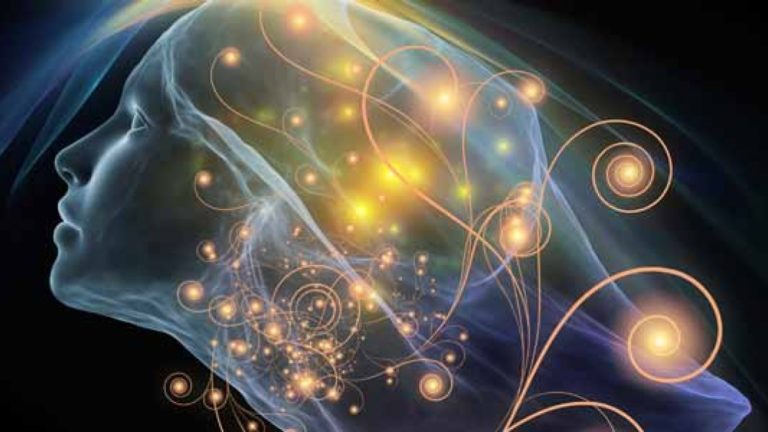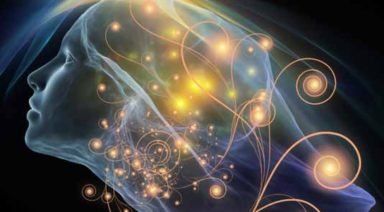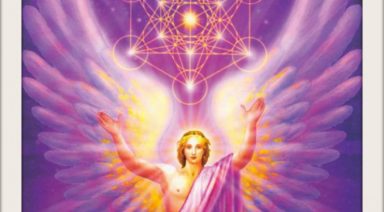Am I a Mystic? Signs & Personality Traits Most Mystics Share

Mysticism transcends traditional religious boundaries, offering a deeply personal and direct connection to the divine or ultimate reality. Mystics seek profound spiritual experiences that go beyond conventional doctrines, emphasizing personal insight and unity with the cosmos. This exploration delves into the essence of mysticism, its presence across various spiritual traditions, key personality traits of mystics, signs that may indicate a mystical inclination and guidance on embracing a mystical path.
What Is a Mystic?
A mystic is an individual who pursues a direct, experiential understanding of the sacred, unmediated by established religious rituals or intermediaries. This pursuit involves transcending traditional belief systems, moving beyond intellectual reasoning, and dissolving identification with the ego self. Mystics often experience a profound sense of unity with the divine, nature, or the cosmos, seeking to connect with the ultimate reality that underlies all existence.
Mystic Spiritual Traditions
Mysticism has manifested across various spiritual traditions throughout history. Each one of these traditions offers a unique pathway to the divine:
- Christian Mysticism: Figures like Teresa of Avila and Julian of Norwich exemplify Christian mysticism, emphasizing an intimate, personal relationship with God through contemplative practices.
- Sufism: In Islam, Sufism represents the mystical dimension, focusing on the inward search for God and the cultivation of divine love and knowledge through direct personal experience. The Inayati Order, founded by Inayat Khan, is an example of a contemporary organization dedicated to spreading Sufi teachings in the modern world.
- Hindu Mysticism: Hindu mystics, such as yogis, seek union with the ultimate reality (Brahman) through practices like meditation, devotion, and self-realization. Similarly, the concept of the Great Work in Thelema, as introduced by Aleister Crowley, draws inspiration from Hermetic alchemy and the Hermetic Qabalah, emphasizing the discovery and manifestation of one’s True Will and achieving mystical union with the universal consciousness.
- Buddhist Mysticism: Buddhism offers mystical paths through deep meditation and mindfulness, aiming for enlightenment and the realization of the true nature of existence.
- Jewish Mysticism: Kabbalah explores the mystical aspects of Judaism, seeking to understand the nature of God and the universe through esoteric teachings.
- Modern Mystical Movements: Contemporary interest in mystical practices has led to the rise of modern movements, such as the resurgence of witchcraft in Australia, where individuals seek spiritual paths free from dogma and judgment, embracing pagan and nature-based faith systems.
Personality Traits of a Mystic
Natural mystics often share common personality traits that reflect their deep spiritual orientation. These characteristics form the spiritual scaffolding essential for growth on the mystical path:
- Intuitive Insight: Mystics possess heightened intuition, allowing them to perceive deeper truths beyond ordinary understanding.
- Comfort with Uncertainty: They embrace the unknown, understanding that not all aspects of existence can be intellectually comprehended.
- Compassion and Empathy: Mystics exhibit profound empathy and compassion, recognizing the interconnectedness of all beings.
- Nonconformity: They often challenge conventional norms and beliefs, seeking personal experiences over established doctrines.
- Inner Transformation: Mystics prioritize personal growth and inner transformation, often engaging in practices that cultivate self-awareness and spiritual development.
- Deep Connection to Nature: Many mystics feel a profound bond with the natural world, seeing it as a reflection of the divine.
- Appreciation for Silence and Solitude: They often seek quiet and solitude to deepen their spiritual practice and connect with their inner selves.
10 Signs You Are a Mystic
If you resonate with the following signs, you might have a mystical inclination that can be nurtured and developed through various spiritual practices.
1. Valuing Personal Experience
You prioritize your personal experience and own encounters with the divine over external teachings or beliefs. Trusting in your own spiritual experiences forms the core of your spiritual path, guiding you to deeper truths.
2. Deep Curiosity About Existence
Your mystical experiences drive a deep curiosity about life, purpose, and the universe. You are constantly seeking to understand the deeper meaning behind existence, guided by a connection to a higher power.
3. Embracing Solitude
Solitude is a cherished part of your spiritual path, where you find solace and profound insights. These moments of personal experience are essential for reflection and deepening your connection with the divine.
4. Sensitivity to Symbolism
You perceive deeper meanings in symbols, dreams, and everyday occurrences, viewing them as messages from a higher power. This sensitivity enhances your spiritual experience and guides you along your mystical path.
5. Experiencing Unity
You often feel a sense of oneness with all life, a key mystical experience that transcends the illusion of separateness. This unity is a profound realization of the interconnectedness fostered by a higher power.
6. Inner Authority
You trust your inner guidance over external authorities, following your own spiritual path based on your spiritual experiences. This internal compass is more significant to you than societal norms or traditional dogmas.
7. Altruistic Service
Altruistic service is integral to your spiritual path. You recognize that serving others not only connects you to them but also to a higher power, making it a sacred duty that enriches your own spiritual experience.
8. Appreciation of Paradox
You comfortably hold contradictory truths, understanding that the spiritual path is complex and multifaceted. This appreciation stems from your mystical experiences, which reveal the rich tapestry of reality.
9. Creative Expression
You use art, music, writing, or other creative outlets to express your mystical experiences. These acts of creation are both personal explorations of your spiritual path and means of sharing your insights with the world.
10. Transcendence of Duality
You strive to move beyond black-and-white thinking, recognizing the interconnectedness of all aspects of life. This transcendence is a deep spiritual experience that challenges and expands your understanding of the universe.
How to Embrace Your Inner Mystic
Embracing a mystical path involves intentional practices and a shift in perspective. To obtain a newfound perspective try the methods below:
- Cultivate Mindfulness: Engage in meditation and mindfulness practices to deepen your awareness of the present moment.
- Seek Direct Experience: Prioritize personal spiritual experiences over second-hand beliefs or doctrines.
- Embrace Solitude: Spend time alone in reflection to connect with your inner self and the divine.
- Study Mystical Teachings: Explore writings and teachings from various mystical traditions to gain diverse perspectives.
Embracing mysticism invites a transformative journey toward profound self-awareness and unity with the cosmos. By cultivating mindfulness, seeking mystical experiences, and engaging in contemplative practices, individuals can deepen their spiritual connection and uncover the mysteries of existence. This path encourages a harmonious relationship with oneself, others, and the universe. No matter which path you take toward mysticism, you’ll live life richer in meaning and inner peace.
Who is Sophia in Gnosticism? Goddess of the Divine Feminine

Sophia, the embodiment of divine wisdom in Gnostic tradition, graces us with a profound understanding of the feminine aspect of the cosmos. Gnosticism—interwoven with early Christianity and enriched by Hellenistic philosophy—is more than a religion; it is a journey toward self-realization and communion with a deeper reality. This sacred knowledge, known as Gnosis (from the Greek “to know”), was lovingly passed down through myths found in Gnostic texts such as those discovered in the Nag Hammadi library.
The Myth of Sophia: The Divine Feminine
Let us immerse ourselves in the enchanting myth of Sophia, whose story illuminates the depths of divine wisdom and the sacred feminine.
Sophia’s Origin in the Pleroma
In Gnostic cosmology, Sophia is the radiant feminine personification of divine wisdom and the youngest of the Aeons—emanations of the ultimate reality known as the Monad or Pleroma. Dwelling in the spiritual fullness of the Pleroma, Sophia is intimately connected with the unknowable Father’s brilliance, born of the twin powers of Depth and Silence.
The Descent and Creation of the Material World
Compelled by an intense yearning to know the Father’s essence, Sophia emanates without her consort, creating a disturbance that leads to her descent from the Pleroma. In her fall, she becomes entwined in the material world, inadvertently giving birth to the Demiurge, often called Yaldabaoth. This ignorant and arrogant entity fashions the material universe, unaware of the spiritual realms above. In certain Gnostic scriptures like the Apocryphon of John, the Demiurge is equated with the God of the Old Testament.
Sophia’s descent introduces imperfection, suffering, and ignorance into existence, as the material world is shaped through her unintended actions.





































